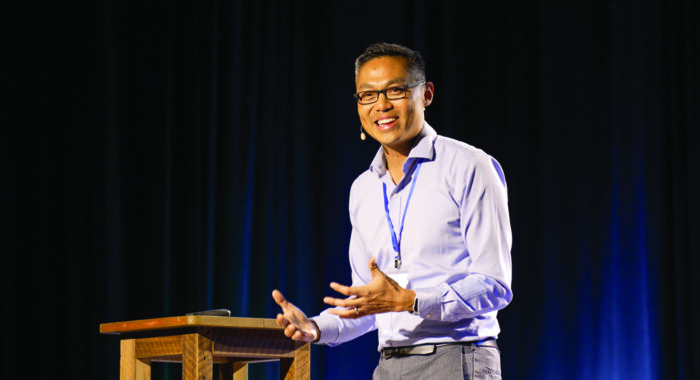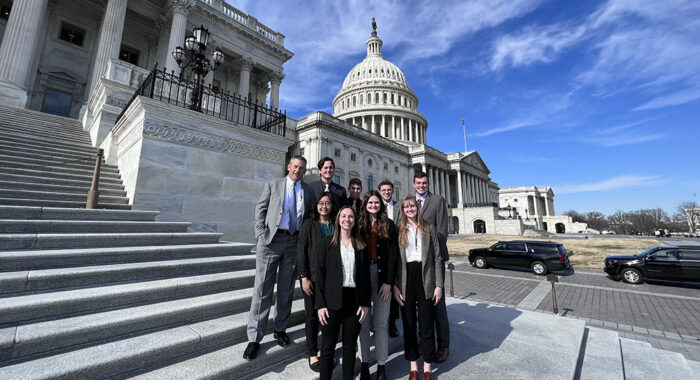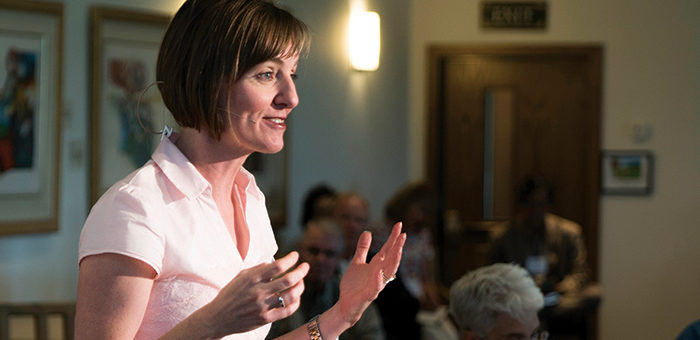Theodore Roosevelt became the youngest president in the history of the United States on September 14, 1901 at age 42. Donald Trump became the oldest candidate inaugurated president on January 20, 2017 at age 70.
Moses spent 80 years preparing to become one of the greatest leaders in human history — 40 years as a prince in Egypt and 40 years as a shepherd in Midian. He rose to historic leadership as an octogenarian, long after most Americans would have enrolled in Medicare.
This year we celebrate the 500th anniversary of Martin Luther launching the Protestant Reformation. Luther was then 33 years old, the same age as Jesus when he died.
In John Kennedy’s inaugural address on January 20, 1961, he made much over the importance of changing generations saying that “the world is different now.” At 42 he was the second youngest American president and the youngest man ever elected to the office. “Let the word go forth from this time and place, to friend and foe alike, that the torch has been passed to a new generation of Americans,” he said.
So how important is generational sociology? Are we simply caught up in an American cultural idiosyncrasy where we prioritize the young and minimize the old? If we were born in Asian gerontocracies, would we turn the chart upside down and honor age over youth?
Generations and age were important to Bible authors. When Israel wandered in the desert, all over age 18 were denied access while everyone in the younger generation was welcomed into the Promised Land (even though some were 57 by the time they arrived). Identification by age and generation is frequent in our Scripture.
The underlying principle is the Christian adaptation to cultural identities in order to spread the gospel and build the Church. There are four New Testament Gospels, each targeted at different audiences. Could there have been just one Gospel of our Lord and Savior Jesus Christ? Yes, but the early Church recognized that those with Hebrew heritage would best grasp the message from Matthew, and those with Greek heritage would best understand Mark.
As biblical Christians, we don’t change the message but we adapt to different groups. Compare the language approach of Christianity to Islam — we translate the Bible into the native languages of others and do not insist that Christians learn Hebrew and Greek; Muslims maintain schools around the globe to teach adherents to recite the Qur’an in Arabic.
Christianity is the biblical faith for all ages, languages and generations. We do not change or compromise God’s message, but we translate and adapt to fulfill the commission of Jesus to “go and make disciples of all nations” … and all generations!
This article originally appeared in Evangelicals magazine.
Leith Anderson is president emeritus of the National Association of Evangelicals and pastor emeritus of Wooddale Church in Eden Prairie, Minnesota. He served as NAE president from 2007–2019, after twice serving as interim president. He served as senior pastor of Wooddale Church for 35 years before retiring in 2011. He has been published in many periodicals and has written over 20 books. Anderson has a Doctor of Ministry degree from Fuller Theological Seminary, and is a graduate of Moody Bible Institute, Bradley University and Denver Seminary.




 View All Articles
View All Articles 






















